11 September
1540 – Death of Thomas Kytson (Kitson) the Elder, merchant, Sheriff of London and builder of Hengrave Hall in Suffolk. He died at Hengrave and was buried in the church there.
1561 – Mary, Queen of Scots began her first royal progress, visiting Holyrood Palace, Edinburgh Castle, Linlithgow Palace, Stirling Castle, Kincardine Castle, Leslie Castle, Perth, Dundee, St Andrews, Cupar, Falkland Palace and Edinburgh, between the 11th and 29th September.
1572 - Pope Gregory XIII ordered a joint commemoration for the defeat of the Ottoman troops by the Holy League at the Battle of Lepanto on 7th October 1571, and for the St Bartholomew's Day Massacre of the Huguenots in France, in August 1572.
1581 – Death of Barnaby Fitzpatrick, 2nd Baron of Upper Ossory, at Dublin, in the home of a surgeon, William Kelly. In his youth, Fitzpatrick had been friends with Prince Edward (future Edward VI) and had been educated with him. He went on to serve his friend, when he became king, as a Gentleman of the Privy Chamber.
1605 – Death of Sir Thomas Tresham the Younger, Catholic recusant politician, at his home, Rushton Hall, in Northamptonshire. He was buried at St Peter's Church, Rushton.
1613 – Death of Sir John Brograve, lawyer. He was buried at St Mary's Church, Braughing, Hertfordshire in the Brograve Chapel. Brograve was one of the leading lawyers in the House of Commons in Elizabeth I's reign.
1614 – Death of Sir Edward Phelips, Elizabeth I's Sergeant-at-Law and Speaker of the House of Commons in James I's reign. He died at Rolls House, London, and was buried at St Catherine's Church, Montacute, Somerset.
12 September
1542 – Death of Sir Edmund Knightley, lawyer and Sergeant-at-Law. He was buried at Letheringham in Suffolk.
1544 – Baptism of Richard Bancroft, Archbishop of Canterbury in the reign of James I, at Prescot, near Farnworth, in Lancashire.
1555 - The trial of Archbishop Cranmer began in the University Church of St Mary the Virgin at Oxford. He was accused of two offences, or doctrinal errors: repudiating papal authority and denying transubstantiation. Cranmer was burned at the stake on 21st March 1556. Click here to read more about the trial.
1559 – Death of Marten Micron (Martin Micronius), Dutch theologian and Protestant minister in the strangers' churches of London , from the plague at Norden in Lower Saxony, Germany.
1573 – Sudden death of Archibald Campbell, 5th Earl of Argyll, Protestant reformer and a leading politician in the reign of Mary, Queen of Scots, at Barbreck. He had got married six weeks earlier and had shown no signs of illness before retiring to bed. He was laid to rest in the family mausoleum at Kilmun Church on the Holy Loch.
13 September
c.1503 – Birth of John Leland, poet and antiquary. Leland is known for his Latin poems and his antiquarian writings which included Assertio inclytissimi Arturii regis Britanniae, which he presented to Henry VIII, his “New Year's Gift” to Henry VIII, Antiquitates Britanniae, De uiris illustribus, his travel notes and his defence of the legends of King Arthur.
1520 - Birth of William Cecil, 1st Baron Burghley and Elizabeth I's chief advisor, at Bourne in Lincolnshire.
1544 – Death of Edward Lee, Archbishop of York. He was buried at York Minster, in the south choir aisle. Lee served Henry VIII as his almoner and a diplomat, as well as being an archbishop.
1557 – Death of Sir John Cheke, Tudor scholar, one time tutor to Edward VI, Secretary of State for Lady Jane Grey and the first Regius Professor of Greek at Cambridge University. He died at the home of his friend, Peter Osborne, in Wood Street, London, probably from influenza, and was buried nearby at the church of St Alban, Wood Street, in the north chapel of the chancel.
1596 – Death of Sir Francis Englefield, courtier, politician and pro-Spanish Catholic exile, at St Alban's College in Valladolid, Spain. He was buried in the college chapel.
1598 – Death of Philip II of Spain at El Escorial, near Madrid. He was buried there the next day. It is thought that he died of cancer, and he had been ill for fifty-two days.
14 September
1514 – Second proxy marriage of King Louis XII of France and Mary Tudor, sister of Henry VIII.
1523 – Death of Pope Adrian VI in Rome. He was buried in Rome's Santa Maria dell'Anima church. Adrian had only been Pope since January 1522.
1538 – The Destruction of the Shrine of Our Lady of Caversham, near Reading, by Dr John London, on the orders of Henry VIII. The shrine had been established in 1106.
1540 - Death of Sir William Kingston, Constable of the Tower of London, Knight of the Garter and comptroller of the King's household, at Painswick in Gloucestershire. He was buried at Painswick.
1585 – Sir Francis Drake set sail from England on a mission to raid Spanish ports. He had been given royal approval for these raids, and raids in the West Indies at the end of 1584.
15 September
1500 – Death of John Morton, Archbishop of Canterbury and Chancellor to Henry VII, at Knole from the plague.
1514 – Thomas Wolsey was appointed Archbishop of York after having been elected in the August. He had already been appointed Bishop of Lincoln in February of that year, and in 1515 he would be elevated to the office of Cardinal.
1556 – Charles V departed from Vlissingen in Zeeland bound for Spain following his voluntary abdication of his titles in October 1555. He spent his retirement in the monastery of Yuste in Extremadura.
1564 – The final day of Mary, Queen of Scots' fourth progress. The progress had begun on 22nd July 1564, and had included stops at Edinburgh, Linlithgow Palace, Stirling Castle, Kincardine Castle, Perth, Blair Atholl, Glen Tilt, Inverness, Beauly Priory, Redcastle, Dingwall, Gartly Castle, Aberdeen, Dunnotar Castle, Dundee and St Andrews.
1589 - The Battle of Arques (part of the French Wars of Religion) began between the troops of Henry IV of France and those of the Catholic League led by Charles of Lorraine, Duke of Mayenne. After days of bloody fighting, Henry IV was victorious.
16 September
1519 – Death of John Colet, scholar, humanist, theologian, Dean of St Paul's and founder of St Paul's School, after suffering three attacks of sweating sickness between 1517 and 1519. He was buried in St Paul's Cathedral. Humanists such as Erasmus were influenced by Colet's work.
1539 – Birth of Walter Devereux, 1st Earl of Essex, nobleman, soldier and adventurer, at Chartley in Staffordshire. Devereux was the eldest son of Sir Richard Devereux and Dorothy Hastings, and was the father of Robert Devereux, 2nd Earl of Essex and a favourite of Elizabeth I.
1541 - King Henry VIII entered the city of York through Walmgate Bar, and was met by the city’s officials at Fulford Cross. The mayor and the aldermen of the city then begged forgiveness from the King for the North’s rebellion during the Pilgrimage of Grace, and gave the King and his wife, Queen Catherine Howard, a gold cup each full of gold coins.
1574 – Death of Sir Robert Catlin, judge and Lord Chief Justice of the Queen's Bench, at Newnham, near Bedford. He was buried at Sutton in Bedfordshire. Catlin was Chief Justice during the Ridolfi Plot and attended the trial of Thomas Howard, 4th Duke of Norfolk, in 1571.
17 September
1558 – Death of Walter Devereux, 1st Viscount Hereford, at the Devereux seat at Chartley in Staffordshire. He was buried in Stowe church. Devereux served Henry VIII as joint Constable of Warwick Castle, as a member of the jury at the trial of Edward Stafford, Duke of Buckingham, in 1521, in the government of the Welsh Marches, as Steward in Princess Mary's household at Ludlow and Chamberlain of the Court of General Surveyors. He also served Edward VI as a Privy Councillor.
1563 – Death of Henry Manners, 2nd Earl of Rutland, courtier and soldier, during an outbreak of the plague. He was buried at Bottesford parish church in Leicestershire. Manners served Edward VI as Warden of the East and Middle Marches on the Scottish borders, joint Lord Lieutenant of Lincolnshire and Nottinghamshire, and Lord Lieutenant of Nottinghamshire. He was imprisoned when Mary I came to the throne for his support of John Dudley, Duke of Northumberland, but was released into house arrest and then pardoned. He served Mary I as Captain-General of Horsemen and Lieutenant and Captain-General in Calais. During Elizabeth I's reign, he served as Lord Lieutenant of Nottinghamshire and Rutland, and President of the Council of the North.
1575 – Death of Heinrich (Henry) Bullinger, the Swiss reformer and theologian, in Zurich. Bullinger succeeded Huldrych Zwingli as pastor at Grossmünster and head of the church in Zurich. His main work was “The Decades”, a theological work, but his sermons were also translated and published, and he wrote historical works.
1577 - The Edict of Poitiers ratified the Treaty of Bergerac, which had been signed between Henry III of France and the Huguenot princes.


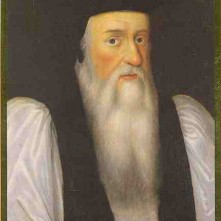

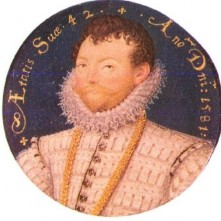
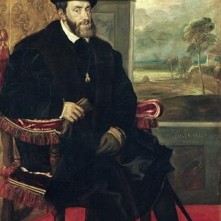


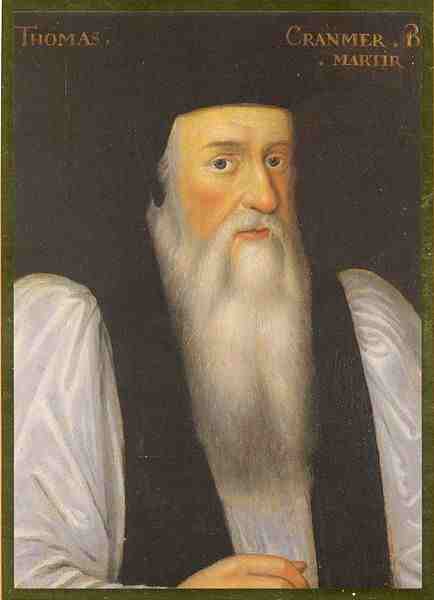
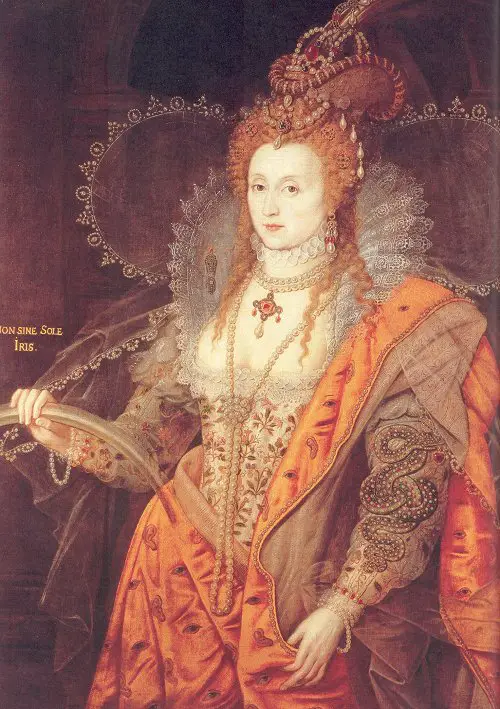
Leave a Reply